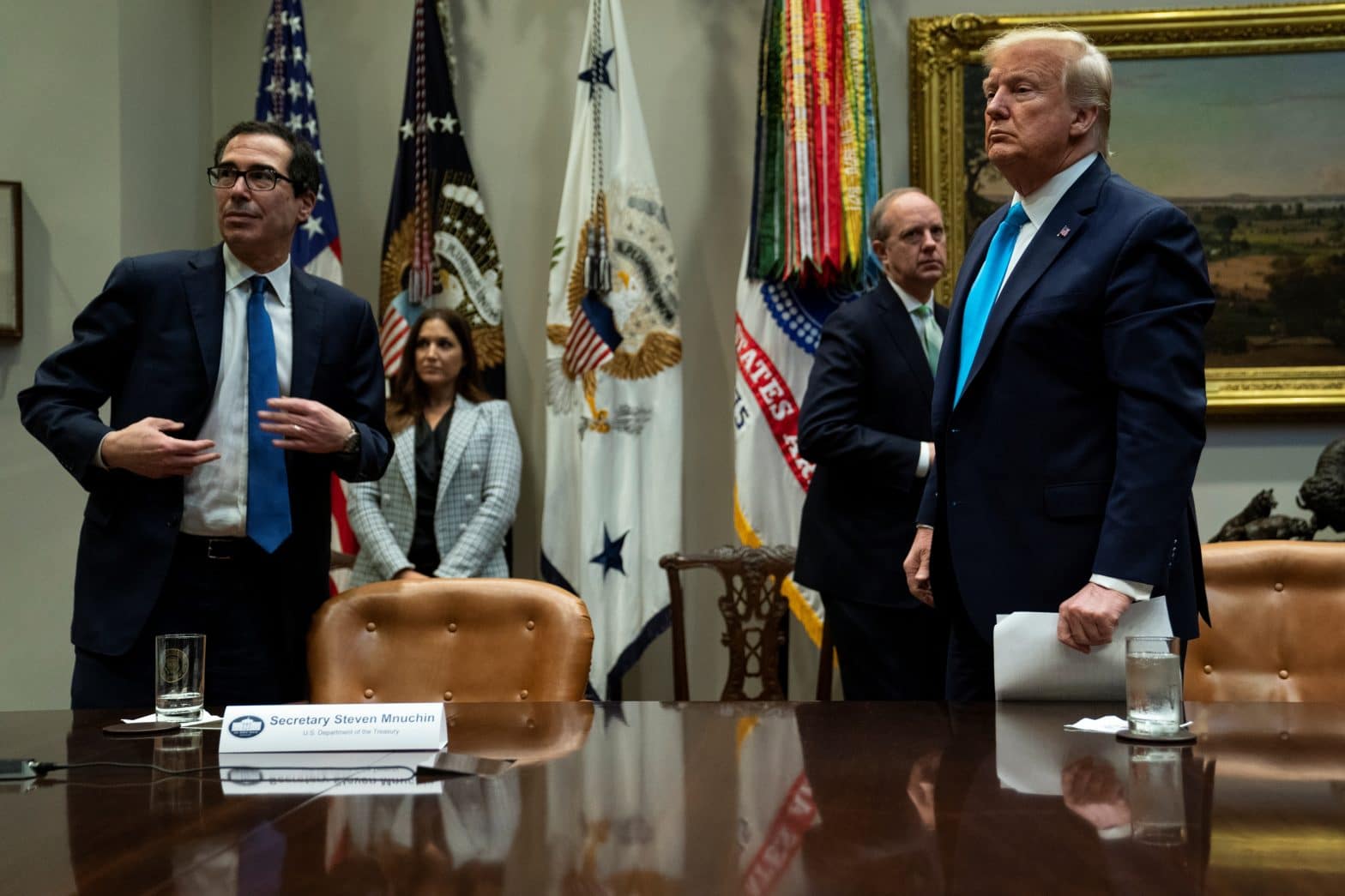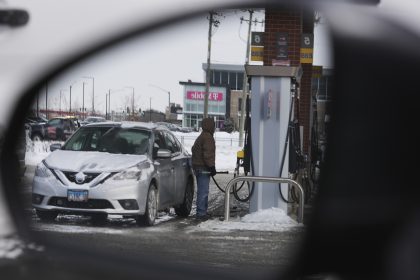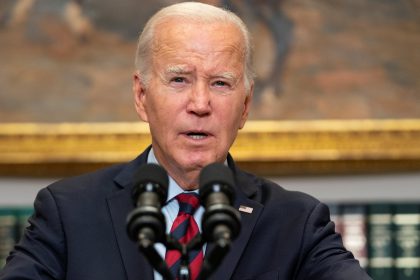Treasury Secretary Says US Economy Could Be Back in Business by May

WASHINGTON – Treasury Secretary Steven Mnuchin said Thursday he believes the U.S. could reopen for business in May, following a near halt caused by the coronavirus outbreak.
During an extended interview on CNBC’s “Squawk on the Street” program, Mnuchin said the resumption of economic activity will begin “as soon as the president feels comfortable with the medical issues.”
In the meantime, he said, the administration is doing “everything necessary so that American companies and American workers can be open for business and that they have the liquidity that they need to operate their business in the interim.”
The secretary’s optimism came on a day of fast-moving events regarding efforts to keep businesses and working Americans afloat during a health crisis that has seen stay-at-home orders issued in nearly every state and the shuttering of “non-essential” businesses.
Shortly before Mnuchin’s appearance, the Labor Department reported that an additional 6.6 million initial claims for unemployment benefits were filed last week, meaning more than 16 million Americans have lost their jobs in the past month.
But immediately on the heels of that news, the Federal Reserve announced new moves to get $2.3 trillion in loans to households, local governments and small and large businesses.
Mnuchin called the Fed action “the big news for today,” as it will provide another massive dose to so-called main street or mid-sized businesses.
“This is something we’ve been working on around the clock with the Federal Reserve, and there are two components to it,” the Treasury Secretary said. “There’s the ability for the Fed to make new loans available, and there’s also the ability for banks to do expanded loans, adding on to existing loans.”
Following Mnuchin’s television appearance, all eyes then turned to the U.S. Senate, where a Republican attempt to add $251 billion to a fund for forgivable small-business loans by unanimous consent was blocked by the ranking Democrat on the Senate Small Business Committee.
Sen. Ben Cardin, D-Md., said he opposed the Republican effort because it wouldn’t go far enough to address the immediate needs of small businesses.
The proposal he said, “leaves out where small businesses need help today. ”
The $349 billion Paycheck Protection Program is the first part of the $2.3 trillion coronavirus economic rescue package to get up and running.
It relies on an existing SBA guaranty program to give small businesses forgivable loans to cover up to eight weeks of payroll and other fixed costs. If the companies mostly use the money to pay their workers during the pandemic’s economic shutdown, then they won’t have to pay it back.
In moving the bill during Thursday’s pro forma session, Senate Majority Leader Mitch McConnell said that only days after the program began, $100 billion in loans had already been committed– 30% of its total funding.
“I’d say that is very good news,” McConnell said. ‘It means this job-saving program is attractive to small businesses … but it also means we need more funding and we need it fast.”
He went on to say his intention was not to change any policy language.
“I am literally talking about deleting the number 300 and writing 600 in its place,” McConnell said.
But even before Sen. Cardin blocked the measure, House Speaker Nancy Pelosi, D-Calif., said it was sure to fail in her chamber.
House Democrats argue the SBA has enough money on hand now to wait a few days while Congress negotiates an interim spending package.
Democrats want to add another $100 billion for hospitals and $150 billion for states to the stop-gap measure, and set aside $60 billion of the SBA’s additional $251 billion for lending to underserved rural and minority small businesses.
House Majority Leader Steny Hoyer, D-Md., said Thursday’s “staggering” unemployment claims report “underscores the importance of Democrats’ fighting to include expanded unemployment insurance in the CARES Act, offering an additional $600 per week to unemployed Americans and expanding eligibility to contractors, the self-employed, and gig economy workers for the first time.
“We must continue to do all we can to help businesses large and small keep workers on the payroll during this crisis, but today’s staggering numbers make it clear that expanded unemployment assistance must be extended beyond July 31, when it is set to expire,” he said.
Hoyer went on to add that House Democrats will continue to push for this additional assistance in subsequent legislation to respond to the coronavirus.
“We will not let up in our effort to support vulnerable Americans during this time of crisis and ensure they can make ends meet until our economy reopens based on the advice of our medical experts and they can return to work,” he said.
Mnuchin responded to the Democratic leadership of the House during his CNBC appearance, saying, “we need more money for small businesses and the president has been very clear: He’s happy to talk about other issues, such as hospitals and states, in the next bill. But, we wanted to go and get money for the small business program.”
On Wednesday, President Donald Trump expressed optimism that the U.S. is approaching the “light at the end of the tunnel” as coronavirus cases peak domestically.
Although he would not commit to the economy restarting on May 1, he also said nothing about extending federal guidelines calling for social distancing to continue at least through the end of April.
























